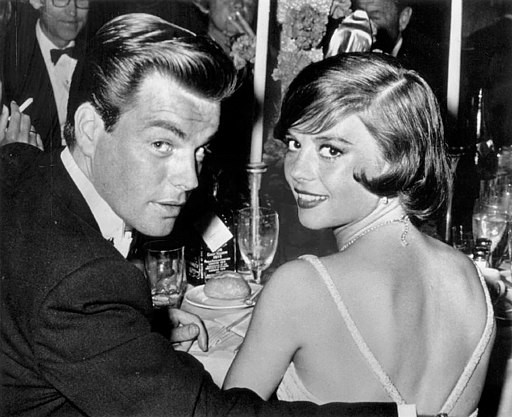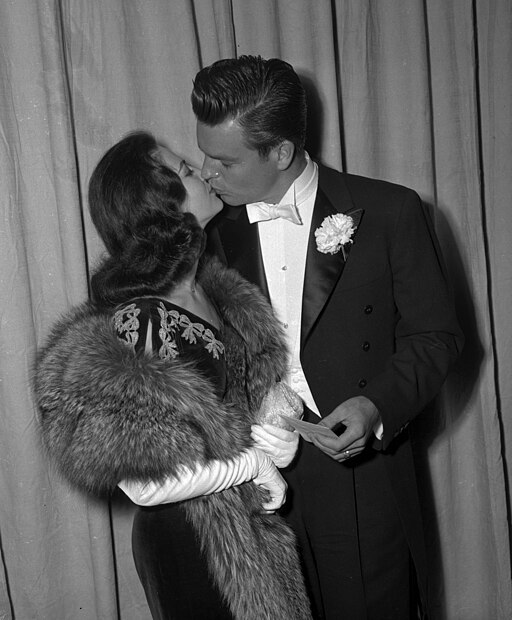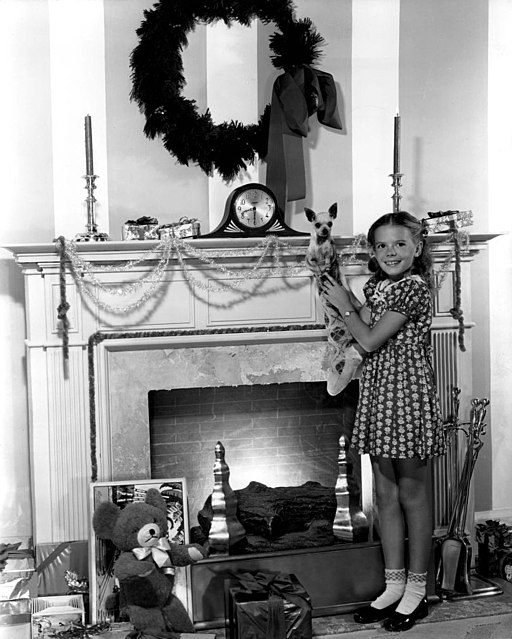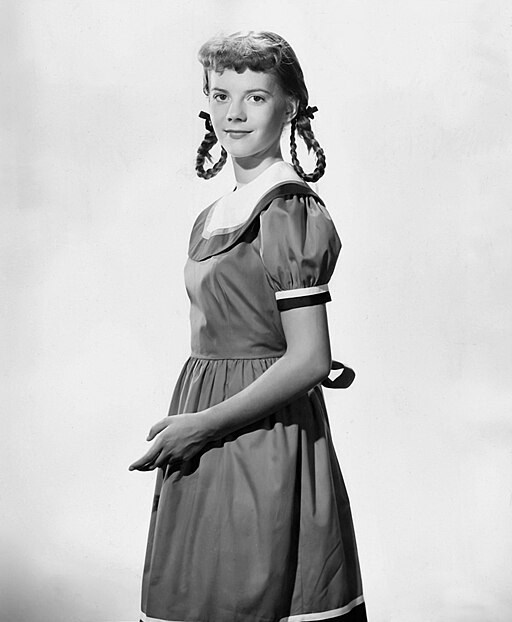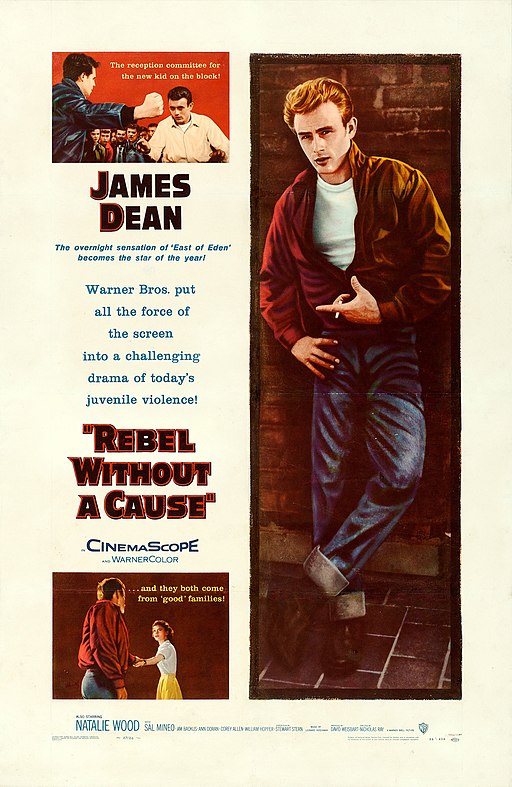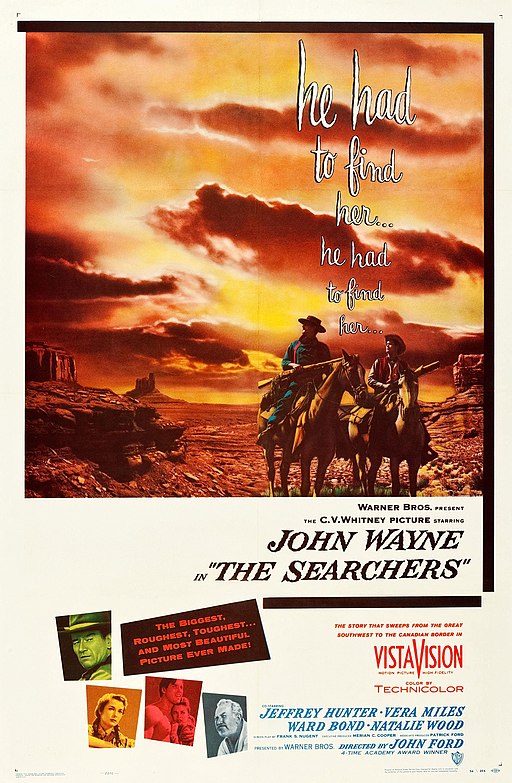Natalie Wood
back| Full Name | Natalia Nikolaevna Zakharenko |
| Stage Name | Natalie Wood |
| Born | July 20, 1938 |
| Birthplace | San Francisco, California, USA |
| Died | November 29, 1981 |
| Buried | Westwood Village Memorial Park Cemetery, Los Angeles, California, USA |
| Married to | Robert Wagner (1957–1962; remarried 1972–1981), Richard Gregson (1969–1972) |
| Children | Natasha Gregson Wagner, Courtney Brooke Wagner |
| Notable films | Miracle on 34th Street (1947) - Rebel Without a Cause (1955) - West Side Story (1961) - Splendor in the Grass (1961) - Gypsy (1962) |
Natalie Wood
From child actress to leading lady
Natalie Wood was a renowned American actress who began her career as a child star and successfully transitioned into adult roles, becoming one of Hollywood's most prominent actresses. Born to Russian immigrant parents, Wood's acting career started at a young age, leading to a long and varied career in film and television.
Her performance in "Rebel Without a Cause" (1955) earned her an Academy Award nomination for Best Supporting Actress.
Wood was known for her beauty and her tumultuous personal life. She married actor Robert Wagner twice, with their relationship receiving significant media attention.
She was also briefly married to producer Richard Gregson, with whom she had a daughter.
Wood's life came to a tragic and mysterious end when she drowned off the coast of Catalina Island in 1981 under circumstances that have been the subject of much speculation and controversy.
Related
Natalie Wood
Biography and analysis of her career with all her movies
Natalie Wood, born Natalia Nikolaevna Zakharenko on July 20, 1938, in San Francisco, California, was a celebrated American actress whose career spanned from childhood stardom to becoming an acclaimed adult performer. Her life, marked by cinematic triumphs and personal trials, remains one of Hollywood's most captivating stories.
Early Years and Family
Wood was born to Russian immigrant parents, Maria and Nikolai Zakharenko. Her mother, Maria, played a pivotal role in guiding her early career in show business.
Wood's younger sister, Lana Wood, also pursued acting.
Career Beginnings
Wood's career began at just four years old, initially in small film roles and commercials. Her mother's ambition and determination were instrumental in these early steps.
Her first significant film role was in "Miracle on 34th Street" (1947), where she played a young girl named Susan. The film was a critical and commercial success and established Wood as a talented child actress.
Transition to Adult Roles
Wood successfully navigated the challenging transition from child star to adult actress. Her breakthrough adult role was in "Rebel Without a Cause" (1955), opposite James Dean, earning her an Academy Award nomination for Best Supporting Actress.
She continued to achieve success with roles in "Splendor in the Grass" (1961), "West Side Story" (1961), and "Gypsy" (1962), showcasing her versatility and depth as a performer.
Personal Life and Marriages
Wood was known for her beauty and her complex personal life. She married actor Robert Wagner in 1957; their union was one of Hollywood's most high-profile relationships. They divorced in 1962 but stunningly remarried in 1972.
Between her marriages to Wagner, Wood was married to British producer Richard Gregson from 1969 to 1972. She had one daughter with Gregson, Natasha Gregson Wagner, and another daughter, Courtney, with Wagner during their second marriage.
Passions and Interests
Aside from acting, Wood was passionate about poetry, music, and was known for her love of the arts. She was also a dedicated mother, with her children being a central part of her life.
Controversies surrounding Natalie Wood’s Tragic Death:
Natalie Wood's death on November 29, 1981, remains one of Hollywood's most enduring mysteries, surrounded by controversy and speculation. She was 43 years old at the time of her death. Here are the key details and controversies surrounding her demise:
Circumstances of Death:
-
Natalie Wood was on a weekend boat trip to Santa Catalina Island on the yacht Splendour, along with her husband, actor Robert Wagner, fellow actor Christopher Walken, and the boat's captain, Dennis Davern.
- On the night of November 28, Wood reportedly went missing from the yacht. Her body was found the following morning floating in the Pacific Ocean near the island. She was wearing a nightgown, socks, and a red down jacket.
- The autopsy report indicated that Wood had bruises on her body and arms and an abrasion on her left cheek. The coroner initially ruled her death as an accidental drowning.
Time of Death
- Wood's body was discovered on the morning of November 29, 1981. The exact time of her death was not definitively established but was presumed to be sometime during the previous night.
Initial Investigation
- The initial investigation concluded that Wood's death was accidental, possibly that she had slipped and fallen into the water while trying to board a dinghy. The case was closed by authorities.
Reopening of the Case
- In 2011, the case was reopened after the boat's captain, Dennis Davern, publicly stated that he had lied during the initial investigation and that a fight between Wagner and Wood had occurred that evening. He suggested that the circumstances surrounding her death were more suspicious than initially concluded.
Change in Death Certificate
- In 2012, the Los Angeles County coroner's office amended Wood's death certificate to change the cause of death from "accidental drowning" to "drowning and other undetermined factors." The coroner's report stated that some of the bruises may have been sustained before she went into the water, but it was not conclusive evidence of foul play.
Speculations and Theories
- Speculation and theories about Wood's death have been rampant, including suggestions of foul play and murder. Some have speculated that the argument between Wagner and Wood could have played a role in her death. However, no definitive evidence has emerged to support these theories, and Wagner has consistently denied any involvement in her death.
Current Status
- The investigation into Natalie Wood's death remains open. Wagner has been named a person of interest but not a suspect, and no charges have been filed against anyone.
In summary, the exact circumstances of Natalie Wood's death remain unclear, and her passing continues to be the subject of speculation and investigation. The mystery surrounding her death has only added to her enduring legacy and the public's fascination with her life and career.
Analysis of Natalie Wood’s acting style:
Natalie Wood's acting style was characterized by her ability to convey deep emotion and vulnerability, bringing a sense of authenticity and relatability to her roles. Here are key aspects of her acting style:
Emotional Depth and Vulnerability
Wood had a remarkable ability to portray vulnerability on screen. Her performances often displayed a deep emotional range, allowing audiences to empathize with her characters. This trait was particularly evident in roles like Maria in "West Side Story" and Judy in "Rebel Without a Cause."
Transition from Child to Adult Roles
Wood successfully navigated the difficult transition from child star to adult actress, a testament to her adaptability and depth as a performer. She managed to shed her child star image and take on more complex, mature roles without losing her audience appeal.
Intensity and Believability
Whether in dramatic or romantic scenes, Wood brought an intensity that made her characters believable and compelling. She was able to convey the subtleties of her character's inner life, often adding layers of meaning to her performances.
Chemistry with Co-Stars
Wood had a notable ability to create strong chemistry with her co-stars, which enhanced her performances and made her roles more engaging. Her partnerships with actors like James Dean, Warren Beatty, and Robert Redford were particularly memorable.
Versatility
Wood's filmography shows her versatility as an actress. She appeared in a wide range of genres, from musicals and comedies to dramatic films, and delivered consistently strong performances across this spectrum.
Physicality and Expressiveness
Wood was also known for her expressive face and eyes, which she used effectively to convey her character's emotions and thoughts. Her physicality was an integral part of her acting, whether in dance sequences in musicals or in more subdued dramatic roles.
Remarkable Quotes from Natalie Wood:
On Life and Experiences:
"The only time a woman really succeeds in changing a man is when he's a baby."
On Love:
"The greatest gift you can give someone is the space to be his or herself, without the threat of you leaving."
Reflecting on Childhood Stardom:
"I spent practically all my time in the company of adults so that I grew up thinking I was one of them. And so I was always out of place, a strange and inappropriate figure in an adult world."
On Acting:
"Sometimes when I visit my sister and see her playing with her children, I think to myself: 'God, she's wasting her life.'"
On Personal Growth:
"I'm not in the habit of denying myself the simple pleasure of saying true things."
Regarding Fame:
"Stardom is only a by-product of acting. I don't think being a movie star is a good enough reason for existing."
On Relationships:
"I think when you are a cool guy but also a hot guy, that makes you even sexier."
Awards and Nominations:
Academy Awards (Oscars):
- Wood received three Academy Award nominations throughout her career:
- Best Supporting Actress: Nominated for "Rebel Without a Cause" (1955).
- Best Actress: Nominated for "Splendor in the Grass" (1961).
- Best Actress: Nominated for "Love with the Proper Stranger" (1963).
Golden Globe Awards:
- Wood won a Golden Globe for "Most Promising Newcomer" in 1957.
- She received additional Golden Globe nominations for "Splendor in the Grass" and "Love with the Proper Stranger."
BAFTA Awards:
- Wood was nominated for a BAFTA Award for Best Foreign Actress for her role in "Splendor in the Grass."
Other Honors:
- Throughout her career, Wood received various other nominations and accolades for her performances.
- She was also honored posthumously for her contributions to the film industry.
Analysis of Natalie Wood’s performance in “Splendor in the Grass”:
Natalie Wood's performance in "Splendor in the Grass" (1961) is widely regarded as one of her finest, showcasing her depth and range as an actress. Directed by Elia Kazan and written by William Inge, the film is a poignant exploration of love, sexual repression, and mental breakdown in the 1920s American Midwest.
Emotional Depth and Vulnerability
- Wood played Wilma Dean "Deanie" Loomis, a young woman experiencing the tumult of first love and the societal pressures of the time. Wood's portrayal of Deanie was deeply emotional and nuanced, capturing the essence of a character torn between her desires and the repressive norms surrounding her.
- She effectively conveyed the internal struggle of Deanie, transitioning from innocence and compliance to confusion and emotional turmoil. Wood's ability to express vulnerability made her character's journey profoundly relatable and heart-wrenching.
Physicality and Nonverbal Expression
- Wood's performance was notable for its use of physicality and facial expressions to communicate Deanie's emotional state. Her body language, eye movements, and expressions added layers to the character, conveying what words could not.
Intensity and Believability
- One of the most intense scenes in the film is Deanie's breakdown, which Wood executed with remarkable believability. Her portrayal of mental collapse was neither overdone nor understated, but rather a haunting depiction of a young woman pushed to the edge by the constraints of her environment.
Chemistry with Co-Stars
- Wood's chemistry with co-star Warren Beatty, who played her love interest Bud Stamper, was palpable. Their interactions captured the complexity of teenage love and desire, accentuating the tragedy of their eventual separation.
Critical Recognition
- Wood's performance in "Splendor in the Grass" earned her an Academy Award nomination for Best Actress. Critics praised her for her emotive force and the maturity she brought to the role.
Legacy
- This role marked a significant point in Wood's career, firmly establishing her as a serious and capable actress. It showed her growth and transition from a child star to an adult performer capable of handling complex, emotionally demanding roles.
List of movies featuring Natalie Wood:
1943: "Happy Land"
- A small role where Wood played a little girl who visits a drugstore.
1946: "Tomorrow Is Forever"
- Wood portrayed the daughter of a woman who believes her first husband died in World War I.
1946: "The Bride Wore Boots"
- A comedy where Wood played the daughter in a Southern family.
1947: "Miracle on 34th Street"
- Wood starred as Susan Walker, a young girl who doubts the existence of Santa Claus in this Christmas classic.
1947: "Driftwood"
- She played a young orphan who finds a stray dog.
1949: "The Green Promise"
- A story about a farming family, where Wood played the daughter who gets injured in a storm.
1949: "Father Was a Fullback"
- Wood played the younger daughter of a college football coach.
1950: "Our Very Own"
- A drama where she portrayed a young girl who discovers she is adopted.
1950: "Never a Dull Moment"
- Wood was featured in this comedy about a city girl who marries a farmer.
1950: "No Sad Songs for Me"
- A drama where Wood played the daughter of a woman dying of cancer.
1951: "The Blue Veil"
- Wood had a small role in this drama about a war widow.
1951: "Dear Brat"
- She played a supporting role as a juvenile delinquent.
1952: "Just for You"
- A musical film where Wood played the daughter of a Broadway producer.
1952: "The Star"
- A drama about a washed-up actress, with Wood playing her daughter.
1952: "The Rose Bowl Story"
- A romantic drama set against the backdrop of the Rose Bowl.
1954: "The Silver Chalice"
- Wood played Helena in this biblical story.
1955: "Rebel Without a Cause"
- A landmark film in which Wood played Judy, a troubled teenager, earning her an Academy Award nomination.
1956: "A Cry in the Night"
- A crime drama where Wood played a kidnapped teen.
1956: "The Burning Hills"
- A Western romance film.
1956: "The Girl He Left Behind"
- A military comedy starring Wood as the love interest.
1958: "Marjorie Morningstar"
- A drama where Wood played an aspiring actress.
1960: "All the Fine Young Cannibals"
- A drama about the life of a struggling jazz musician.
1961: "Splendor in the Grass"
- A romantic drama where Wood played a young woman dealing with sexual repression, earning her another Academy Award nomination.
1961: "West Side Story"
- A classic musical where Wood played Maria, a role that became one of her most famous.
1962: "Gypsy"
- A musical biopic where Wood portrayed the legendary stripper Gypsy Rose Lee.
1963: "Love with the Proper Stranger"
- A romantic comedy-drama where Wood played a salesclerk who has a one-night stand with a musician.
1964: "Sex and the Single Girl"
- A comedy where Wood played a writer for a women's magazine.
1965: "Inside Daisy Clover"
- A drama in which Wood portrayed a troubled Hollywood actress.
1965: "The Great Race"
- A slapstick comedy set in the early 20th century.
1966: "This Property Is Condemned"
- A drama based on a Tennessee Williams play where Wood played a young woman in the South.
1966: "Penelope"
- Wood starred as a kleptomaniac in this comedy.
1969: "Bob & Carol & Ted & Alice"
- A satirical comedy-drama about two couples exploring sexual freedom.
1975: "Peeper"
- A comedy set in the 1940s.
1979: "Meteor"
- A disaster film where Wood played a scientist.
1980: "The Last Married Couple in America"
- A comedy about the state of marriage in the 1970s.
1983: "Brainstorm"
- Wood's final film, a science fiction film completed posthumously, about scientists who develop a device for recording and playing back human experiences.


